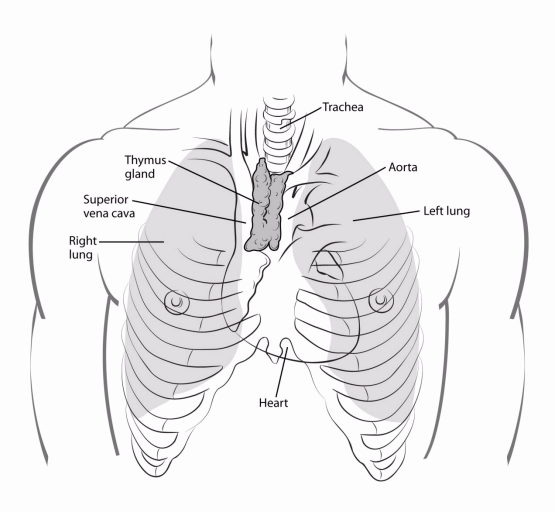Signs and Symptoms of Acute Lymphocytic Leukemia (ALL)
Acute lymphocytic leukemia (ALL) can cause many different signs and symptoms. Most of these occur in all kinds of ALL, but some are more common with certain subtypes of ALL
Overall, the signs and symptoms of leukemia can affect men or women and do not differ by sex or gender.
Symptoms caused by low numbers of blood cells
Most signs and symptoms of ALL are the result of shortages of normal blood cells, which happen when the leukemia cells crowd out the normal blood-making cells in the bone marrow. These shortages show up on blood tests, but they can also cause symptoms, including:
- Feeling tired
- Feeling weak
- Feeling dizzy or lightheaded
- Shortness of breath
- Pale skin
- Infections that don’t go away or keep coming back
- Bruises (or small red or purple spots) on the skin
- Bleeding, such as frequent or severe nosebleeds, bleeding gums, or heavy menstrual bleeding in women
General symptoms
Patients with ALL also often have several non-specific symptoms. These can include:
- Weight loss
- Fever
- Night sweats
- Loss of appetite
Of course, these are not just symptoms of ALL and are more often caused by something other than leukemia.
Swelling in the abdomen
Leukemia cells may build up in the liver and spleen, making them larger. This might be noticed as a fullness or swelling of the belly, or feeling full after eating only a small amount. The lower ribs usually cover these organs, but when the organs are enlarged the doctor can feel them.
Enlarged lymph nodes
ALL that has spread to lymph nodes close to the surface of the body (such as on the sides of the neck, in the groin, or in underarm areas), might be noticed as lumps under the skin. Lymph nodes inside the chest or abdomen may also swell, but these can be detected only by imaging tests such as CT or MRI scans.
Bone or joint pain
Sometimes leukemia cells build up near the surface of the bone or inside the joint, which can lead to bone or joint pain.
Spread to other organs
Less often, ALL spreads to other organs:
- If ALL spreads to the brain and spinal cord it can cause headaches, weakness, seizures, vomiting, trouble with balance, facial muscle weakness or numbness, or blurred vision.
- ALL may spread inside the chest, where it can cause fluid buildup and trouble breathing.
- Rarely, ALL may spread to the skin, eyes, testicles, ovaries, kidneys, or other organs.
Symptoms from an enlarged thymus
The T-cell subtype of ALL often affects the thymus, which is a small organ in the middle of the chest behind the sternum (breastbone) and in front of the trachea (windpipe). An enlarged thymus can press on the trachea, which can lead to coughing or trouble breathing.

The superior vena cava (SVC), a large vein that carries blood from the head and arms back to the heart, passes next to the thymus. If the thymus is enlarged, it may press on the SVC, causing the blood to “back up” in the veins. This is known as SVC syndrome. It can cause:
- Swelling in the face, neck, arms, and upper chest (sometimes with a bluish-red color)
- Headaches
- Dizziness
- Change in consciousness if it affects the brain
The SVC syndrome can be life-threatening, and needs to be treated right away.
- Written by
- References

The American Cancer Society medical and editorial content team
Our team is made up of doctors and oncology certified nurses with deep knowledge of cancer care as well as editors and translators with extensive experience in medical writing.
Appelbaum FR. Chapter 98: Acute Leukemias in Adults. In: Niederhuber JE, Armitage JO, Dorshow JH, Kastan MB, Tepper JE, eds. Abeloff’s Clinical Oncology. 5th ed. Philadelphia, Pa. Elsevier: 2014.
Jain N, Gurbuxani S, Rhee C, Stock W. Chapter 65: Acute Lymphoblastic Leukemia in Adults. In: Hoffman R, Benz EJ, Silberstein LE, Heslop H, Weitz J, Anastasi J, eds. Hematology: Basic Principles and Practice. 6th ed. Philadelphia, Pa: Elsevier; 2013.
National Cancer Institute. Adult Acute Lymphoblastic Leukemia Treatment (PDQ®). Accessed at www.cancer.gov/types/leukemia/patient/adult-all-treatment-pdq on July 20, 2018.
Last Revised: February 27, 2024
American Cancer Society medical information is copyrighted material. For reprint requests, please see our Content Usage Policy.
American Cancer Society Emails
Sign up to stay up-to-date with news, valuable information, and ways to get involved with the American Cancer Society.


